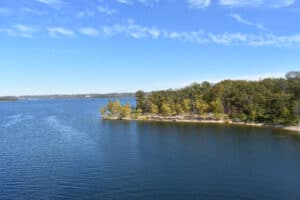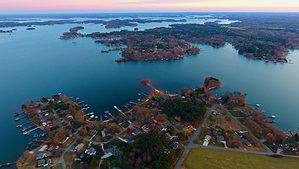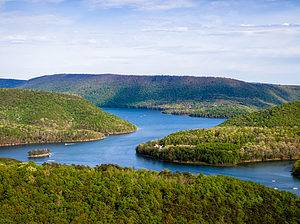Key Points:
- The clearest lake in Colorado is Columbine Lake, located in the San Juan National Forest near Silverton.
- The lake is so clear due to its alpine location, meaning it has a short warm season so natural material such as algae does not grow well in the water.
- To view Columbine Lake, visitors need to hike a challenging and steep trail with an elevation gain of over 2,000 feet that takes around two or more hours.
Colorado is home to the Rocky Mountains, rolling hills, miles of grasslands, steep canyons, and many natural freshwater sources. Colorado is an outdoor lover’s paradise. People flock to the state for hiking, biking, skiing, snowboarding, rock climbing, and anything else that requires physical exertion and sun on your skin. It is also home to some of the best natural wonders in the country, including crystal clear, bright blue lakes. While you may not want to swim in some of these waters depending on the time of year, they are still a sight you don’t want to miss. Discover the clearest lake in Colorado, including the wildlife in the area and other deep blue, glass-like lakes.
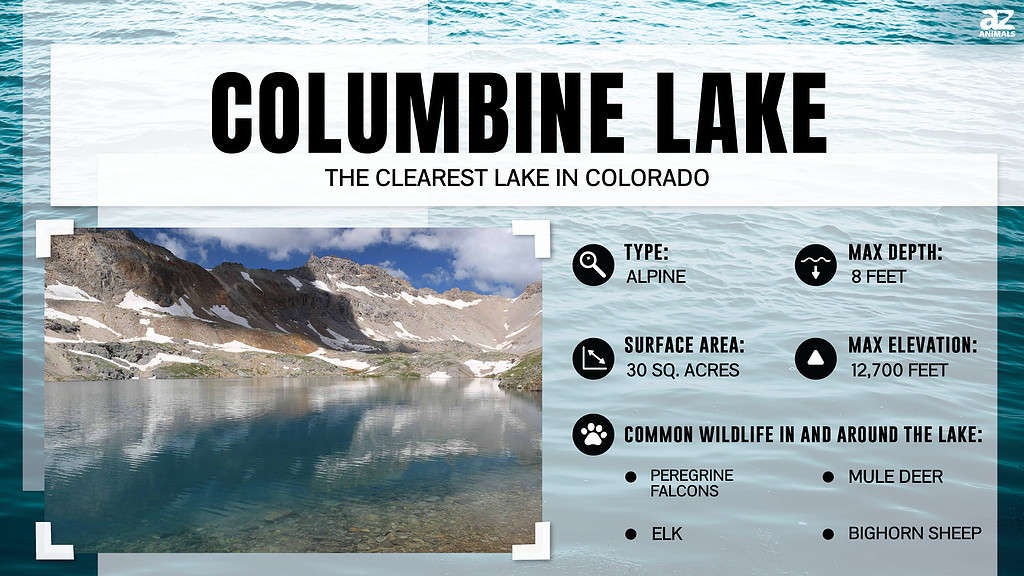
What Is the Clearest Lake in Colorado?
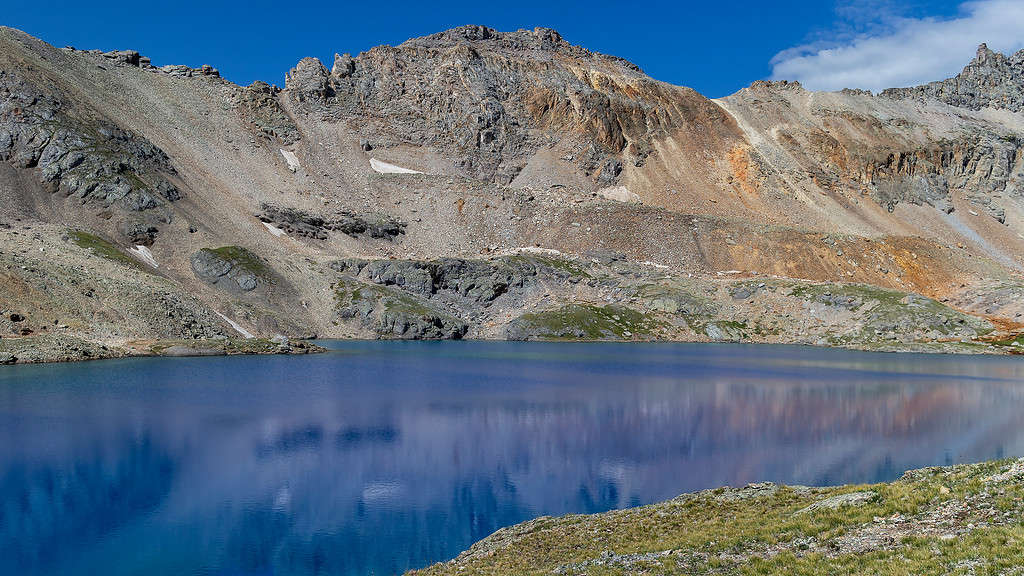
Columbine Lake is the clearest lake in Colorado. It is a secluded alpine lake in the San Juan National Forest.
©Matt Kirby Photography/Shutterstock.com
Columbine Lake in the San Juan National Forest is the clearest lake in Colorado. Located in Southwest Colorado near Silverton, Columbine Lake is a secluded alpine lake nestled in the mountains. This lake is not easy to access and requires physical effort to get there. To view Columbine Lake, you must hike a challenging and steep trail. If you take the trailhead from the parking lot, the lake is about 3.5 miles away, which takes around two or more hours to reach. It’s recommended you bring walking poles and have some knowledge of route finding. You will also gain an elevation of over 2,000 feet, so ensure you are properly acclimated to the high elevation before proceeding.
It may seem like too much effort to reach this body of water, but you won’t be disappointed once you do. Columbine Lake is one of the most breathtaking alpine lakes in the state. You hike through dense forests and meadows before reaching a glacial bowl filled with blue water that looks like glass.
Check out these lakes across the United States with some of the clearest waters.
Why Is Columbine Lake So Clear?
Columbine Lake is an alpine lake, meaning it sits at a high elevation in a typically frigid area. Due to its location, it has fewer nutrients and a short warm season. This means that natural material, like algae, doesn’t grow well in the water. The lake contains pure groundwater and snow runoff. While Alpine lakes are gorgeous, they are also very delicate. Any introduction of non-native species can easily alter the lake’s water.
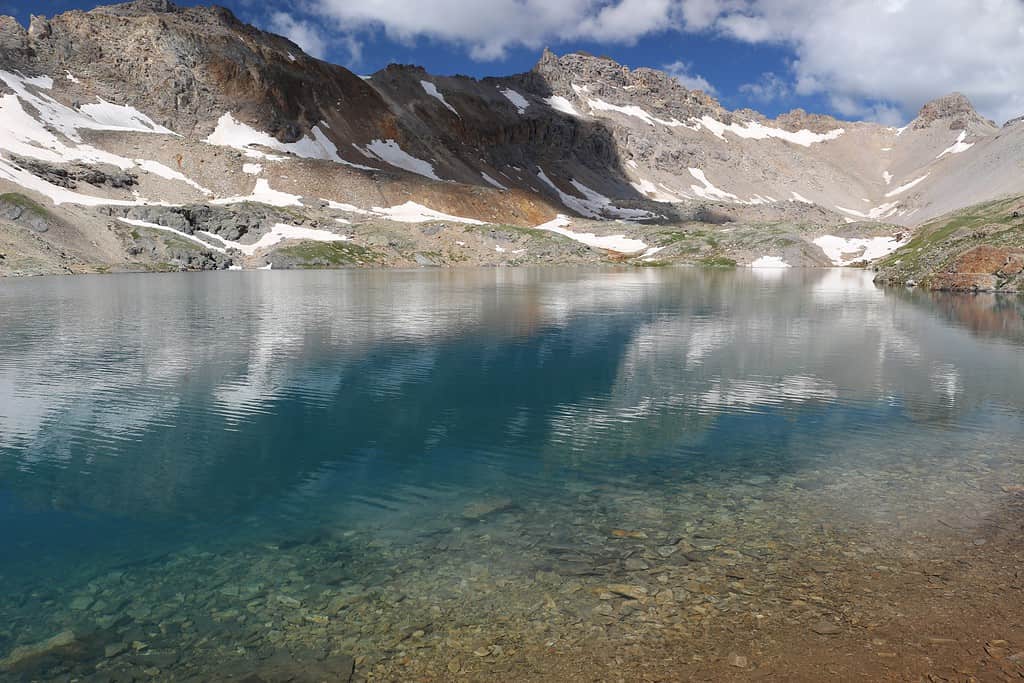
Columbine Lake is an alpine Lake, meaning it sits at a high elevation in a typically frigid area.
©anderig96/Shutterstock.com
What Wildlife Lives In and Around Columbine Lake?
The San Juan National Forest features many animal species, from birds to large mammals. Some of the wildlife you might see on your hike to Columbine Lake include:
- Peregrine falcons
- Mule deer
- Elk
- Bighorn sheep
- Moose
- Black bears
- Mountain lions
- Turkeys
- Grouse
- Hummingbirds
- Cassin’s finches
- Lizards
- Cicadas
- Prairie dogs
- Chipmunks.
Where Is Columbine Lake Located on a Map?
Discover the scenic 12.7-km out-and-back trail near Silverton, Colorado, renowned for its challenging terrain, with an average completion time of 5 hours and 16 minutes. As a favored destination for camping, fishing, and hiking, expect to encounter fellow outdoor enthusiasts during your exploration.
Here is Columbine Lake on a map:
What Are Some Other Clear Lakes in Colorado?
Can’t get enough of Colorado’s majestic mountains and crystal-clear lakes? Check out a few more!
And then read this article that brings you 10 more clear lakes in Colorado.
Lake Isabel
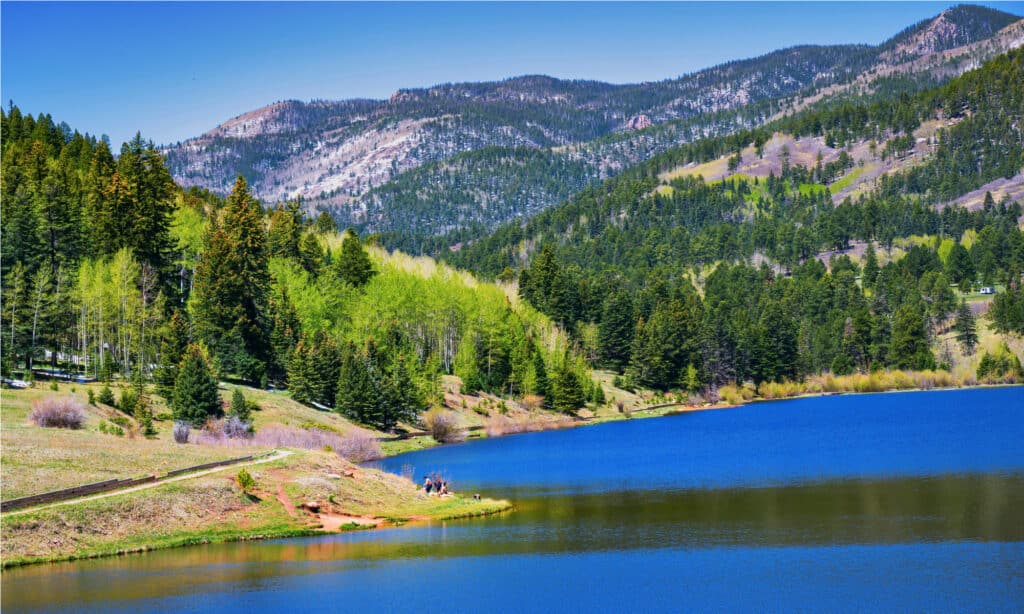
Stunning Lake Isabel is a 40-acre alpine reservoir.
©Grossinger/Shutterstock.com
Lake Isabel is in Rye, Colorado, in the San Isabel National Forest. The lake is actually a 40-acre alpine reservoir surrounded by enormous pine trees and forested mountains. Unlike Columbine Lake, which is mainly for looking, Lake Isabel provides recreational opportunities. You can camp around the water and enjoy kayaking, canoeing, and stand-up paddleboarding. There is also year-round trout fishing available with proper licensing.
Hanging Lake
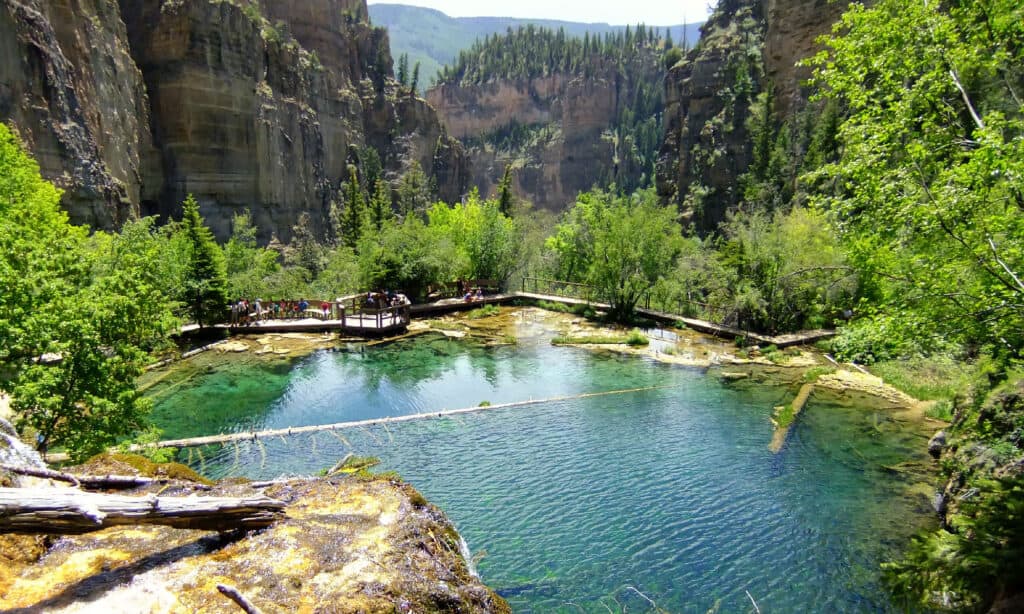
Beautiful Hanging Lake is a breathtaking body of water and a natural landmark in Glenwood Canyon.
©iStock.com/Donyanedomam
Hanging Lake is a hidden gem and geological wonder in Colorado. Formed by a geologic fault and fed by waterfalls, Hanging Lake is a breathtaking body of water and a natural landmark in Glenwood Canyon. You must hike a little over a mile, traversing steep and rocky canyons to reach the lake. Due to the sensitivity of the water, you can’t go into the lake. Fishing and swimming are not allowed. But the views of the glass-like lake and magical waterfall are a must-see for anyone visiting the area.
Blue Lakes
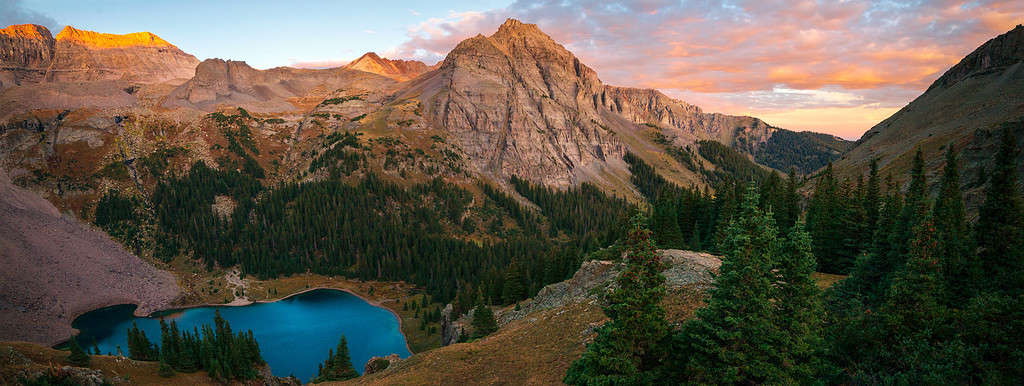
The Blue Lakes are a set of three mountain lakes in the San Juan Mountains.
©sixfournorth/Shutterstock.com
The Blue Lakes are nestled in the San Juan Mountains in Southwest Colorado. There are three mountain lakes that require an uphill climb to reach. The hike is slightly easier than Columbine Lake, but it still takes over three miles to get to the first lake. To reach the second and third lakes, you will have to climb another mile. There are also no restrictions for getting in the water, but due to their frigid temperatures, you may not want to.
The photo featured at the top of this post is © anderig96/Shutterstock.com
Thank you for reading! Have some feedback for us? Contact the AZ Animals editorial team.



